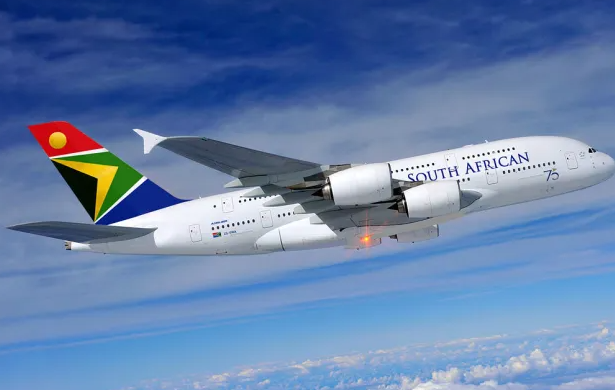EU Court Decision on Sanctions Against Viktor Yanukovych
The European Union’s General Court has upheld sanctions against Viktor Yanukovych, the former president of Ukraine, ruling against his efforts to overturn the restrictions. These sanctions, including a travel ban and asset freeze, remain in force following a detailed 18-page judgment which found sufficient grounds for the EU’s decision. Yanukovych’s actions during his presidency were deemed to have contributed significantly to instability in Ukraine, justifying the measures.
Key points highlighted by the court included Yanukovych’s continued association with Russian authorities and his involvement in a plan aimed at destabilizing the current Ukrainian government. The court emphasized his appeal in 2014 to Russian leadership to deploy troops in Ukraine, alongside support for pro-Russian officials in Crimea and efforts to weaken the country’s defense between 2012 and 2014. Alongside Viktor Yanukovych, his son Oleksandr also lost an appeal related to sanctions tied to business activities in Russian-occupied regions of Donbas.
Background of Yanukovych’s Presidency and Sanctions
Yanukovych’s presidency spanned from 2010 to 2014, a period marked by allegations of corruption, alignment with Moscow, and harsh suppression of pro-democracy protesters. These actions culminated during the EuroMaidan protests when violent clashes resulted in the deaths of over 100 people. After being ousted, Yanukovych fled to Russia, where he remains in exile.
The European Union’s sanctions reflect broader efforts to respond to political upheaval in Ukraine and maintain pressure through travel restrictions and financial asset controls. Both sanctions and travel bans serve as tools meant to uphold international standards and stability in regions impacted by political conflict.
Table: Summary of EU Sanctions Against Yanukovych
| Type of Sanction | Details |
|---|---|
| Travel Ban | Prohibition from entering EU member states |
| Asset Freeze | Freezing of financial assets within EU jurisdiction |
| Business Restrictions | Limitations on economic activities linked to sanctioned individuals |
Impact on International Tourism in Eastern Europe
While the court’s decision specifically targets Yanukovych, such political and legal developments can ripple through the wider landscape of international tourism in the region. The EU and Eastern European countries, including Ukraine, have seen evolving travel dynamics shaped by political stability, economic growth, and access to open borders.
Since the fall of communism and the expansion of the EU, Eastern Europe has witnessed significant liberalization, allowing easier outbound travel for its citizens. Growth in disposable incomes and the rise of budget airlines have created new opportunities for leisure and business travel across the continent and beyond. However, geopolitical tensions and ongoing regional conflicts can influence travelers’ preferences and accessibility.
Eastern Europe Outbound Tourism Overview
Countries such as Poland, Ukraine, Romania, and the Czech Republic have become major sources of outbound tourists within Eastern Europe. Free movement within the EU, coupled with relatively low travel costs, has encouraged millions to explore European destinations by air, road, and rail. Nonetheless, travel patterns are often impacted by security concerns and diplomatic relations.
Key Trends in Eastern European Tourism
- Increased leisure travel driven by rising middle-class incomes.
- Growth of independent travel due to internet connectivity and online bookings.
- Regional tourism focused on nearby countries within the EU and CIS.
- Diplomatic tensions occasionally causing shifts in visa policies and border restrictions.
Outlook for Ukraine and Regional Stability in Tourism
Ukraine remains a complex market due to its political challenges and fluctuating relations with neighboring states. Although the economy has shown signs of recovery in recent years, dependence on external factors and regional conflicts introduces uncertainty for tourism development. International cooperation and political stability will be crucial for fostering growth in both inbound tourism and regional yacht charters or boating activities, as the country’s access to inland waters and the Black Sea offer considerable potential.
In a broader sense, the evolving geo-political situation around Ukraine might affect marine activities along the Sea of Azov and the Black Sea coasts, where sailing and yachting constitute significant leisure industries. Investors and tourists alike monitor such developments to gauge prospects for safe and pleasant experiences on water.
Summary and Connection to Sailing and Boats Rental
The EU court’s reinforcement of sanctions on former Ukrainian President Viktor Yanukovych highlights ongoing concerns regarding political stability in Eastern Europe. These developments bear relevance beyond politics, touching on international tourism patterns, including the popularity of sailing, yacht charters, and coastal activities that attract visitors to the region.
Sailing enthusiasts and vacationers often look to destinations with stable security and open access, especially in areas around the Black Sea and nearby gulfs favored for boating and water sports. While geopolitical issues remain sensitive, the appeal of marinas, clear waters, and scenic sailing routes continue to attract tourists and yachtsmen from all over the world. Accessibility, freedom to travel, and local hospitality play central roles in determining how these recreational sectors evolve.
For those interested in exploring sailing and boat rental options in Eastern Europe and surrounding waters, ゲットボート・ドットコム offers an international marketplace that connects customers with a wide range of yachts, sailboats, and other watercraft. It serves as a reliable source for discovering the best boating destinations, from serene lakes to bustling coastal marinas, ensuring unforgettable experiences on the sea or ocean while taking into account the current travel landscape.

 South African Airways Increases Long-Haul Capacity Using Hi Fly Malta A330">
South African Airways Increases Long-Haul Capacity Using Hi Fly Malta A330">
